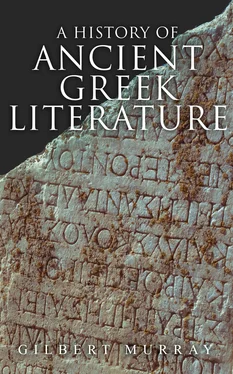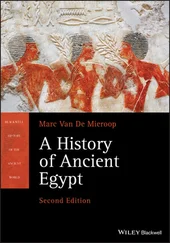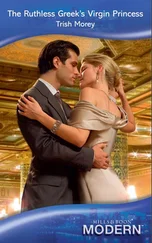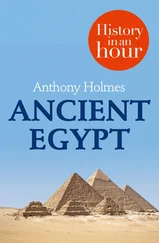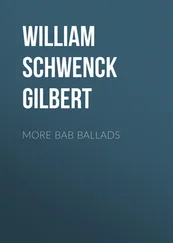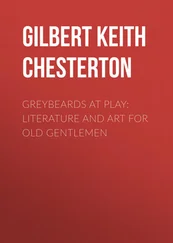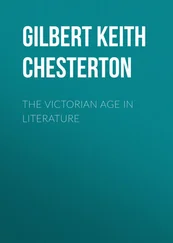There were many comic battle-pieces; we hear of a Spider-fight, * a Crane-fight, * a Fieldfare-poem. * Some were in iambics, and consequently foreign to the Homeric style. The most celebrated comic poem was the Margîtes, * so called after its hero, a roaring blade (μαργος), high-spirited and incompetent, whose characteristic is given in the immortal line --
πóλλ' ήπíστατο ἐργù, κακως δ ἠπíστατο πáντα.
" Many arts he knew, and he knew them all badly; and again: "He was not meant by the gods for a digger or a ploughman, nor generally for anything sensible; he was deficient in all manner of wisdom. " Late writers on metre say the poem was in a mixture of heroic and iambic verse, a statement which suggests a late metrical refurbishment of a traditional subject. It can scarcely be true of the poem which Aristotle regarded as Homer's. Margîtes must have been more amusing than Hierocle's 'Scholasticus,' the hero of the joke-book from which so many of our 'Joe Millers' are taken. Scholasticus was a pure fool, with nothing but a certain modesty to recommend him.
What is meant by calling these poems Homeric? Only that they date from a time when it was not thought worth while to record the author's name; and, perhaps, that if you mean to recite a mock epic battle, it slightly improves your joke to introduce it as the work of the immortal Homer.
As the epos of romance and war was personified in 'Homêros,' the bard of princes, so the epos of plain teaching was personified in the peasant poet 'Hêsiodos.' The Hesiodic poems, indeed, contain certain pretended reminiscences, and one of them, the Erga, is largely made up of addresses to 'Persês,' assumed to be the poet's erring friend -- in one part, his brother. We have seen that the reminiscences are fictions, and presumably Persês is a fiction too. If a real man had treacherously robbed Hesiod of his patrimony by means of bribes to 'mandevouring princes,' Hesiod would scarcely have remained on intimate terms with him. 'Persês' is a lay figure for the didactic epos to preach at, and as such he does his duty. Hesiod wants to praise industry, to condemn the ways of men, and especially of judges: the figure must be an idle dog, ignorant of the world and fond of law. Hesiod wants to praise righteousness: the figure must show a certain light-handedness in its dealings with money. We have then no information of what Hesiod was -- only a tradition of what Hesiod was supposed to be. He was born at Kymê, in Æolis; his father migrated to Bœotia, and settled in Ascra, a charming and fertile village on the slopes of Mount Helicon, which the poet describes as " bad in winter, insufferable in summer. " Here he herded flocks on Helicon, till one day the Muses greeted him with the words: " Boors of the wild fields, by-words of shame, nothing but belly! We know how to tell many false things true-seeming, but we know how to speak the real truth when we will. " This made Hesiod a poet. We hear nothing more of him till his death, except that he once went across the channel from Aulis to Chalkis to take part in a competition at the funeral games of Amphidamas, king of Eubœa, and, although much of his advice is about nautical matters, that he did not enjoy the sea. He avoided Southern Greece because of an oracle which foretold that he should die at Nemea; and so he did, at a little sanctuary near Oineon in Locris, which happened to bear that name. He was murdered and thrown into the sea by the brothers of one Clymenê or Ctimenê, who was supposed to have borne a son to the octogenarian poet; but the dolphins brought the body to land, and a stately tomb was built for it at Oineon. The son was the great lyrist Stêsichorus!
Certainly the faith of these legend-makers can move mountains. Yet we can perhaps get some historical meaning out of their figments. The whole evidence of the poems goes to suggest that there was a very old peasantpoetry in Bœotia, the direct descendant in all likelihood of the old Æolian lays of the Achaioi, from which ' Homer' was developed; and that this was at some time enriched and invigorated by the reaction upon it of the full-flown Ionian epic. That is, Ionian poets must have settled in Bœotia and taken up the local poetry. Whether one of those poets was called 'Hêsiodos' is a question of little importance. It does not look like an invented name. At any rate, the Bœotian poetry flourished, and developed a special epic form, based on the Ionian ' Homer,' but with strong local traits.
What of Hesiod's death? We know that the Hesiodic poetry covered Locris as well as Bœotia; the catalogues of women are especially Locrian. The Clymenê story is suggested, doubtless, by a wish to provide a romantic and glorious ancestry for Stêsichorus. Does the rest of the story mean that Locris counted Hesiod as her own, and showed his grave; while Bœotia said he was a Bœotian, and explained the grave by saying that the Locrians had murdered him? As for the victory at the funeral games of Amphidamas, it is a late insertion, and the unnamed rivals must be meant to include Homer. The story of a contest between Homer and Hesiod, in which the latter won, can be traced back, as we saw (p. 6), to the fifth century at least.
Of Hesiod's poems we have nominally three preserved, but they might as well be called a dozen, so little unity has any one of them -- the Theogony, the Works and Days ( Erga ), and the Shield of Heracles.
The Works and Days is a poem on ' Erga, ' or Works of agriculture, with an appendix on the lucky and unlucky Days of the month, and an intertexture of moral sentences addressed to Perses. It is a slow, lowly, simple poem; a little rough and hard, the utterance of those Muses who like to tell the truth. There is no swing in the verses; they seem to come from a tired, bent man at the end of his day's work -- a man who loves the country life, but would like it better if he had more food and less toll. There is little sentiment. The outspoken bitterness of the first 'Gnômê' is characteristic: " Potter is wroth with potter, and carpenter with carpenter; aye, beggar is envious of beggar, and minstrel of minstrel! " So is the next about the judges who rob the poor man: " Fools, they know not how the half is more than the whole, nor the great joy there is in mallow and asphodel. " Mallow and asphodel were the food and flowers of the poor. The moral sentences increase in depth in the middle of the poem, and show a true and rather amiable idea of duty. " Hard work is no shame; the shame is idleness. " " Help your neighbour, and he will help you. A neighbour matters more than a kinsman. " " Take fair measure, and give a little over the measure -- if you can. " " Give willingly; a willing gift is a pleasure. " " Give is a good girl, and Snatch is a bad girl, a bringer of death! " " It is best to marry a wife; but be very careful, or your neighbours may be merry at your expense. There is no prize like a good wife: nothing that makes you shudder like a bad; she roasts you without fire, and brings you to a raw old age. " At the end these sentences degenerate into rules of popular superstition -- " not to put the jug on the mixingbowl when drinking; that means death! " " not to sit on immovable things," and so on. One warning, "not to cross a river without washing your hands and your sins, " approaches Orphism.
The agricultural parts of the Erga are genuine and country-like. They may be regarded as the gist of the poem, the rest being insertions and additions. There is the story how the gods had "hidden away his life from man," till good Promêtheus stole fire and gave it him. Then Zeus, to be even with him, made a shape like a gentle maiden, and every god gave it a separate charm, and Hermes last put in it the heart of a dog and the ways of a thief. And the gods called it Pandôra, and gave it to Epimêtheus, who accepted it on behalf of mankind. There is the story of the four ages: at least there ought to be four -- gold, silver, bronze, and iron; but, under the influence of Homer, the heroes who fought at Troy have to come in somewhere. They are put just after the bronze and before ourselves. We are iron; and, bad as we are, are likely to get worse. The gods have all left us, except Aidôs and Nemesis -- those two lovely ideas which the sophist Protagoras made the basis of social ethics, and which we miserably translate into Shame and Righteous Indignation. Some day, Hesiod thinks, we shall drive even them away, and all will be lost. Two passages, indeed, do suggest the possibility of a brighter future: all may be well when the Demos at last arises and punishes the sins of the princes (175, 260 ff.). It is interesting to compare the loyalty of the prosperous Ionian epos towards its primitive kings with the bitter insurgency of the Bœotian peasant-song against its oligarchy of nobles.
Читать дальше
